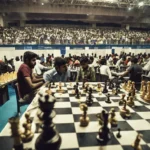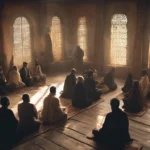New Delhi, 2025 — The media, often called the fourth pillar of democracy, plays a pivotal role in shaping public opinion, fostering national pride, and upholding democratic principles. In India, this influence extends beyond traditional media houses to include social media platforms, which have become powerful tools for promoting nationalism and reinforcing democratic values among citizens.
Traditional Media’s Role in Nationalism and Democracy
- Fostering National Identity Traditional media outlets such as Doordarshan and All India Radio have historically served as mediums for fostering a shared national identity. From broadcasting the national anthem to covering significant national events like Republic Day parades, these platforms have instilled a sense of pride and unity.
- Promoting Democratic Engagement News channels and newspapers play a critical role in informing citizens about governance, policies, and election processes. Investigative journalism by respected media houses often highlights corruption and inefficiencies, ensuring accountability and transparency in government functioning.
- Narrating India’s Global Achievements The coverage of India’s achievements, such as the success of Chandrayaan-3 or the expansion of Make in India projects, has amplified a sense of pride and showcased India’s growing stature on the global stage.
The Rise of Social Media in Promoting Nationalism
Social media platforms like Twitter, Instagram, and Facebook have revolutionized how nationalism and democratic values are communicated and celebrated.
- Grassroots Movements Social media has enabled ordinary citizens to participate in and amplify grassroots movements. Campaigns like ‘Har Ghar Tiranga’ during Independence Day saw millions of Indians sharing pictures of the national flag on social media, creating a digital wave of patriotism.
- Voices for Accountability Platforms like Twitter and Instagram have become spaces where citizens demand accountability, highlight social issues, and engage in policy discussions. These platforms democratize information, ensuring that voices from all sections of society can be heard.
- Promoting Local Heroes Social media influencers and creators are spotlighting unsung heroes, cultural festivals, and local traditions, fostering pride in regional and national heritage. Initiatives such as ‘Incredible India’campaigns have leveraged influencers to promote tourism and cultural heritage, strengthening both nationalism and the economy.
- Combating Misinformation While misinformation remains a challenge, fact-checking initiatives and responsible creators on social media are actively countering false narratives and promoting credible information.
Challenges in Media’s Role
While media plays an essential role, there are challenges:
- Polarization The rise of echo chambers on social media and biased reporting by some traditional outlets can exacerbate divisions rather than fostering unity.
- Misinformation The rapid dissemination of unverified information, particularly on social media, can harm democratic discourse and create mistrust among citizens.
- Over-commercialization The prioritization of sensationalism over substantive reporting in both traditional and social media can dilute their democratic role.
A Balanced Path Forward
- Strengthening Media Literacy Promoting digital and media literacy can help citizens critically evaluate information, ensuring they engage responsibly with content that promotes democratic values.
- Encouraging Ethical Journalism Both traditional and social media must adhere to ethical guidelines, focusing on accurate reporting and inclusive narratives that strengthen democratic institutions.
- Collaborations for National Causes Joint efforts between media houses, social media platforms, and government agencies can amplify campaigns that promote nationalism and democratic participation, such as voter awareness initiatives or environmental conservation efforts.
Conclusion
In a diverse democracy like India, the media’s role in promoting nationalism and democratic values is both significant and multifaceted. From traditional newsrooms to social media timelines, these platforms shape public discourse, encourage civic engagement, and foster a shared sense of pride in the nation. By addressing challenges and leveraging their reach responsibly, the media can continue to be a cornerstone of India’s democratic and nationalistic aspirations, ensuring that the country thrives both as a democracy and as a proud, united nation.









